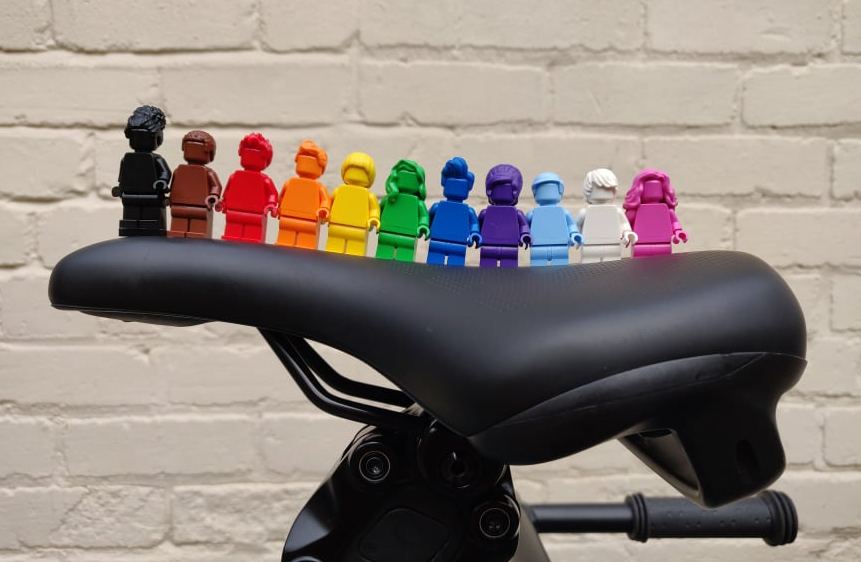learning to be proud
3 minute read
I have only recently begun to understand and learn more about gender identity and sexuality, that includes my own too.
I have been very lucky to have lived in places and be surrounded by people who were incredibly accepting and supportive of everyone, regardless of their ethnicity, ability, gender identity or sexual orientation. Or if they weren’t, they were at least open to education and change.
However, in my time being involved in Derby’s cycling sector this has sadly not been the case. Here I have been told (by straight white cisgender men) that they are intimidated by me because I do not look like a ‘stereotypical woman’. I have very short hair. I prefer dungarees over dresses. The list goes on but apparently my appearance alone is enough to warrant apprehension, and that is before I’ve even dared to utter a single word.
The experience I have had in local cycling groups and even in a professional capacity have at times felt like what I imagined life used to be like decades ago; mocking, objectifying and shouting at women, people of colour and those from the LGBTQIA+ community is tolerated, and those responsible protected. It has taken time and lots of backlash for me to finally acknowledge that my short hair and dungarees combo isn’t going to stop this behaviour, no matter how hard I try.
These experiences are exactly why people branch off to form groups that cater for specific demographics. In fact, it was one of the main reasons I set up this collective.
We are exhausted from the fighting, the justifying, the educating. We need safe and inclusive spaces to be ourselves without the constant stress and fear of judgement, harassment and abuse.
The result is an increasing number of cycling groups and initiatives that focus on those who are underrepresented in the cycling sector such as women, people of colour and disabled people, but the LGBTQIA+ community are sadly often overlooked.
Studies and research shows that LGBTQIA+ people are much less likely to be active and are more likely to experience poor mental and physical health. Unfortunately just as the LGBTQIA+ community is overlooked from an outreach perspective, there is also limited data available from leading sports and cycling bodies on levels of engagement and participation. This issue and the accompanying statistics are covered excellently and eloquently in my wonderful friend Richard Hearne’s open letter on the diversity and inclusion problem in cycling.
Richard set up and is chairperson of PRiDE OUT, a friendly and inclusive cycling group for lesbian, gay, bi, trans, intersex, queer and ACE/asexual people (LGBTQIA+) and allies across the UK. As well as voluntarily spending his time organising led rides across the country, he tirelessly campaigns for better LGBTQIA+ representation and inclusion in cycling. I am in constant awe of his tenacity, fearlessness and perseverance. And it is working. He recently announced PRiDE OUT’s global partnership with Trek and he is in communication with senior management at British Cycling, Sustrans and Cycling UK. Change is coming but it is important to acknowledge that Richard, and others campaigning on this issue, have worked incredibly hard to raise awareness and make this happen, in spite of the difficulties and challenges that they continue to face.

Richard’s experience, and countless more like his, show that Pride Month is a time to celebrate but that it is also a protest. As an organisation, we will do everything we can to add our voice and to amplify others. We will continue to welcome and include those from the LGBTQIA+ community, and we are open to feedback and change to achieve this.
We are therefore grateful to local groups and organisations in the wider Derbyshire county like Ilkeston Cycling Club who have organised a Pride event, and also to Big on Bikes who are supporting them. Hopefully more groups within the city will follow their positive example.
I sincerely hope that one day all of us will be welcome and accepted in any cycling group or organisation within Derby and beyond regardless of our sexual orientation, gender identity, ethnicity or ability. Until that dream becomes a reality, we are learning to be proud of who we are, and what we stand for.
Happy Pride,
Lucy
founder | spoke out
